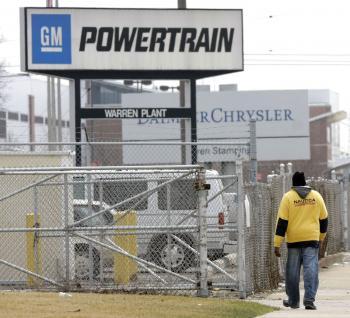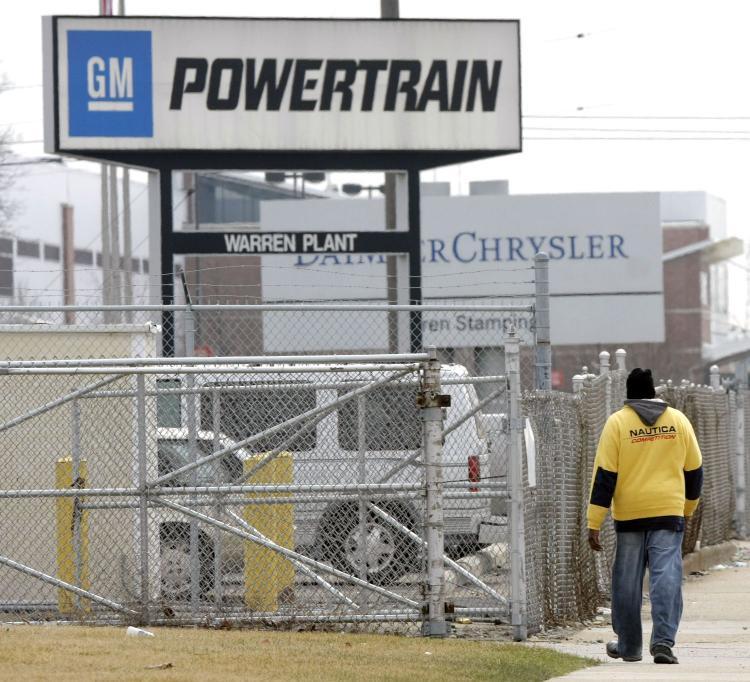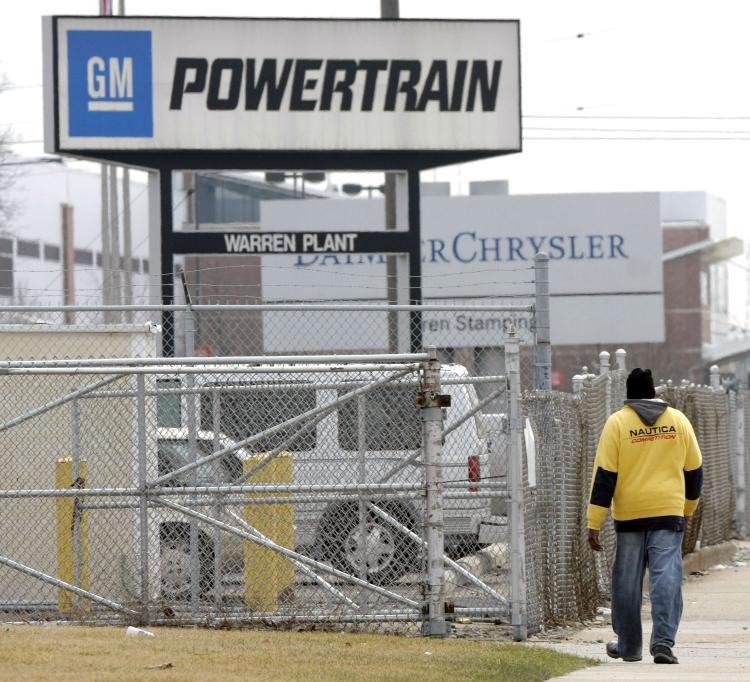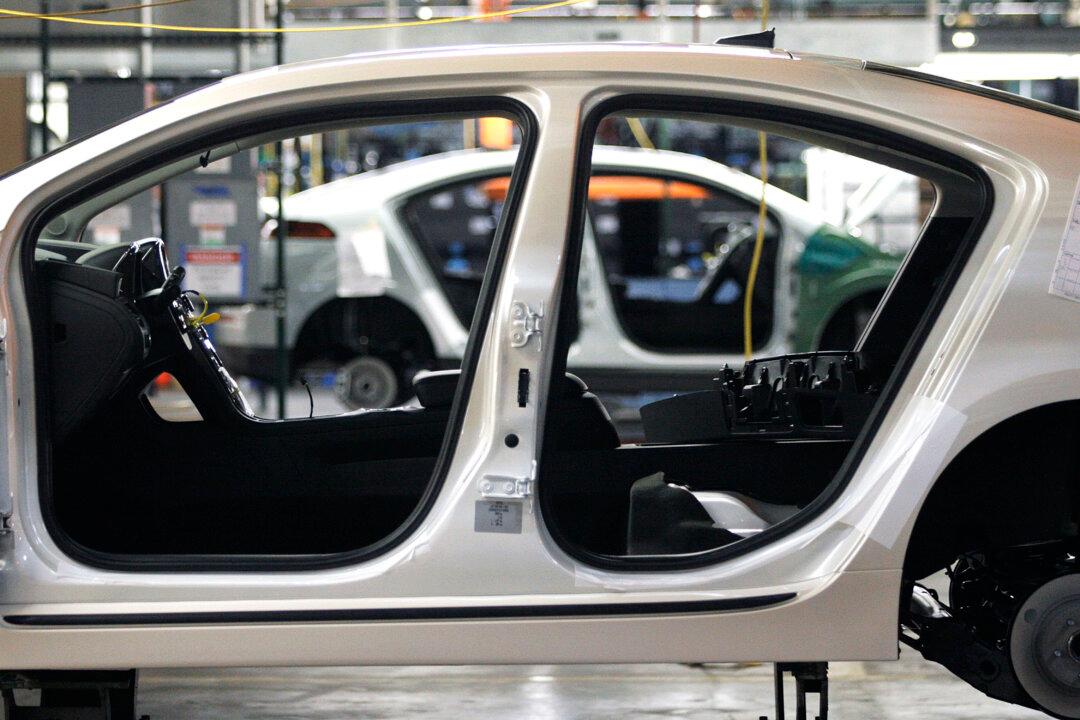Shares of General Motors Corp. have risen more than 20 percent over the last two weeks and jumped again last Friday by almost 6 percent on news that the federal government will not push the troubled automaker into bankruptcy.
GM Chief Executive Officer Richard Wagoner met with officials of President Barack Obama’s auto task force last Friday about another loan.
President Obama is set to announce on Monday a new financial aid package to help the auto industry—but with one condition: Wagoner must resign.
According to reports, Wagoner, GM’s CEO since 2003, will step down immediately at the behest of the White House.
Wagoner’s departure is not surprising, given the state of the company and its upcoming restructuring. But analysts have given Wagoner a thumbs-up in recent months for his aggressive efforts at reforming the manufacturing giant.
On Sunday, AP reported that GM would receive enough cash to sustain itself for 60 days while it completes its restructuring, and fellow “Big Three” automaker Chrysler would get cash and a chance to formulate a deal with Italian automaker Fiat S.p.A.
President Obama will announce the details on Monday.
“The president, I think, will outline what he thinks is the best way forward to achieve viability for the companies in both the short term and the longer term,” White House spokesperson Robert Gibbs told reporters.
GM and Chrysler LLC have already taken in $17.4 billion in bailout from the Treasury and are seeking an additional $21.6 billion. The auto parts industry also recently secured $5 billion in federal loans to fend off one of the toughest markets for automakers in nearly half a century.
Initial calls for induced bankruptcy of automakers have subsided as the companies announced vast restructuring and cost cuts.
GM announced last week that around 12 percent, or 7,500, of its hourly U.S. workforce has accepted voluntary buyouts or early retirement packages.
“If [the car companies are] not willing to make the changes and the restructurings that are necessary, then I’m not willing to have taxpayer money chase after bad money,” President Obama said in an online town hall meeting.
“And so a lot of it’s going to depend on their willingness to make some pretty drastic changes. And some of those are still going to be painful, because I think you’re not going to see a situation where the U.S. automakers are gaining the kind of share that they had back in the 1950s.”
However, many of the concessions that GM and Chrysler promised to make—after obtaining the first $17.4 billion loans—appear to be in jeopardy. GM faces a March 31 deadline to strike a deal with its bondholders to convert two-thirds of their holdings into stock shares. With many creditors so far reluctant to oblige, that plan is far from consummation.
Both companies were also supposed to use equity stakes to pay for certain retiree healthcare benefit costs.
The new requirements are a 2 miles per gallon increase than the previous year. The change is part of a 2007 law enacted by former President George W. Bush to curb gas emissions.
“These standards are important steps in the nation’s quest to achieve energy independence and bring more fuel efficient vehicles to American families,” Secretary of Transportation Ray LaHood said in a statement.
Mindful of the current financial difficulties of automakers, the National Highway Traffic Safety Administration (NHTSA) said in a report that the new rules are “within the financial capability of the industry, but not so stringent as to threaten substantial economic hardship for the industry.”
GM and Chrysler had previously announced that part of their planned usage for the financial bailout was to “comply with applicable federal fuel efficiency and emission requirements.”
Ford is betting that the Fiesta, currently sold in Europe, will be a hit in the States as the market shifts to smaller, environmentally friendlier, and less gas guzzling cars.
J.D. Power & Associates reports that auto sales this month continue to suffer, and leading the decline is small and mid-sized vehicles. But some analysts believe that’s a reflection of cheap gas. When gasoline price continues its inevitable hike in the future, sales of smaller cars will take off.
The 2010 Fiesta, at 155 inches long, will compete in the U.S. market against imports Honda Fit and Toyota Yaris, as well as the Scion xD.
GM Chief Executive Officer Richard Wagoner met with officials of President Barack Obama’s auto task force last Friday about another loan.
President Obama is set to announce on Monday a new financial aid package to help the auto industry—but with one condition: Wagoner must resign.
According to reports, Wagoner, GM’s CEO since 2003, will step down immediately at the behest of the White House.
Wagoner’s departure is not surprising, given the state of the company and its upcoming restructuring. But analysts have given Wagoner a thumbs-up in recent months for his aggressive efforts at reforming the manufacturing giant.
On Sunday, AP reported that GM would receive enough cash to sustain itself for 60 days while it completes its restructuring, and fellow “Big Three” automaker Chrysler would get cash and a chance to formulate a deal with Italian automaker Fiat S.p.A.
President Obama will announce the details on Monday.
“The president, I think, will outline what he thinks is the best way forward to achieve viability for the companies in both the short term and the longer term,” White House spokesperson Robert Gibbs told reporters.
GM and Chrysler LLC have already taken in $17.4 billion in bailout from the Treasury and are seeking an additional $21.6 billion. The auto parts industry also recently secured $5 billion in federal loans to fend off one of the toughest markets for automakers in nearly half a century.
Initial calls for induced bankruptcy of automakers have subsided as the companies announced vast restructuring and cost cuts.
GM announced last week that around 12 percent, or 7,500, of its hourly U.S. workforce has accepted voluntary buyouts or early retirement packages.
“If [the car companies are] not willing to make the changes and the restructurings that are necessary, then I’m not willing to have taxpayer money chase after bad money,” President Obama said in an online town hall meeting.
“And so a lot of it’s going to depend on their willingness to make some pretty drastic changes. And some of those are still going to be painful, because I think you’re not going to see a situation where the U.S. automakers are gaining the kind of share that they had back in the 1950s.”
However, many of the concessions that GM and Chrysler promised to make—after obtaining the first $17.4 billion loans—appear to be in jeopardy. GM faces a March 31 deadline to strike a deal with its bondholders to convert two-thirds of their holdings into stock shares. With many creditors so far reluctant to oblige, that plan is far from consummation.
Both companies were also supposed to use equity stakes to pay for certain retiree healthcare benefit costs.
New Mileage Requirements
Adding to the plight of domestic automakers, the U.S. Transportation Department announced that all cars and light trucks in the United States must meet a fuel-economy average of 27.3 miles per gallon by 2011.The new requirements are a 2 miles per gallon increase than the previous year. The change is part of a 2007 law enacted by former President George W. Bush to curb gas emissions.
“These standards are important steps in the nation’s quest to achieve energy independence and bring more fuel efficient vehicles to American families,” Secretary of Transportation Ray LaHood said in a statement.
Mindful of the current financial difficulties of automakers, the National Highway Traffic Safety Administration (NHTSA) said in a report that the new rules are “within the financial capability of the industry, but not so stringent as to threaten substantial economic hardship for the industry.”
GM and Chrysler had previously announced that part of their planned usage for the financial bailout was to “comply with applicable federal fuel efficiency and emission requirements.”
Have a Fiesta
While GM and Chrysler zone in on Washington’s coffers, rival automaker Ford Motor Co.—which continues to insist that it doesn’t need a bailout—is set to bring its highly popular Ford Fiesta to the United States this year.Ford is betting that the Fiesta, currently sold in Europe, will be a hit in the States as the market shifts to smaller, environmentally friendlier, and less gas guzzling cars.
J.D. Power & Associates reports that auto sales this month continue to suffer, and leading the decline is small and mid-sized vehicles. But some analysts believe that’s a reflection of cheap gas. When gasoline price continues its inevitable hike in the future, sales of smaller cars will take off.
The 2010 Fiesta, at 155 inches long, will compete in the U.S. market against imports Honda Fit and Toyota Yaris, as well as the Scion xD.






